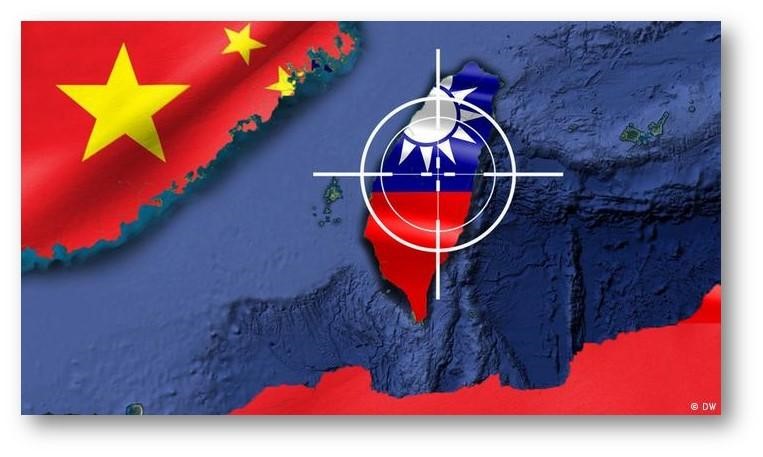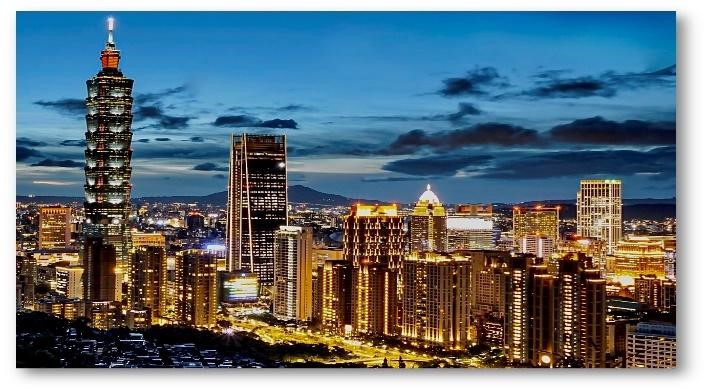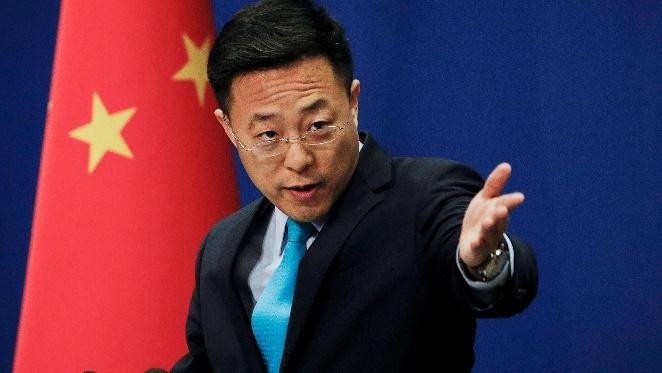
One China Policy
China found its independence during an intense era of socialism, led by Chiang Kai-shek of Kuomintang (KMT). The struggle for independence against Japan was brutal with stigmatised costs on the social fabric. Japan as an imperial power and occupation force during World War 2 was ruthless and unforgiving. The uprising against imperial suppression led by KMT strongly bonded the nation but its polity got divided around two main personalities Chiang Kai-shek of the KMT and Mao Zedong of the Chinese Communist Party (CCP). While both groups were fighting the common enemy, they were vertically split. The animosity was severe, post-massacre of thousands of CCP cadres, the entire country plunged into civil war. The course of history though gave an upper hand to CCP as KMT later fled to Taiwan. Both claimants declared territory under their control as China, one officially named the People’s Republic of China (PRC) under Mao, what is now Mainland China, and the island territory under Chiang Kai-shek as the Republic of China (ROC) better known as Taiwan. Significantly, both parties claimed the other’s territory as illegally occupied and vowed to take it back.
The term ‘One China’ was first used in the 1972 Joint Communique between the PRC and the US for formalising relations between the two countries. Later, it was interpreted by the PRC as the One China Policy and as assurance over its ‘rightful’ claim on Taiwan. As China marched towards prosperity and development, it attracted huge trade and investments from across the world. They very shrewdly attached their trade relations with commitment from trading partners to agree on the One China Policy, in other words, to legitimise its claim over Taiwan. Nation after nation lapped up China’s trade offer without going into the finer prints. A historical issue got an unfair international endorsement on behalf of one party. The One China Policy was nothing less than a mega propaganda trumpeted by the Chinese as an unshakable commitment from the international community towards PRC’s claim over Taiwan.

Divergent Routes
Until December 1949, KMT ruled the entire mainland China and Taiwan but post the defeat in the civil war got marginalised to Taiwan. If anyone can be credited for China’s independence post World War 2, it was KMT and not the CCP, which came into the picture much later and got recognition only after the 1949 civil war. Remarkably, never in history, it has occurred that CCP has control of the entire land mass of China and Taiwan let alone ruling it. CCP’s claim over a territory that it never ruled remains a historic irony. As both nations charted different paths, their destiny naturally took them to different destinations. Owing to land reforms and favourable policies Taiwan experienced an Economic Miracle in the mid-60s. Taiwan’s economic journey has been equally complimented by its political excursion, it introduced democratic reforms in the 80s and became full-fledged democracy in the 90s.
On the contrary, China continued its socialist approach with a one-party policy, becoming an entirely chained society having all of its umbilical connected to Politburo. It reflected the writ one party held over the entire spectrum of national affairs from security to statute and from assets to administration. Taiwan’s Economic Miracle inconspicuously became an inspiration for PRC to go the capitalist way, a 180 degree turnaround. In the late 80s, China fully braced Western capitalism under Deng Xiaoping. However, admission of the same would have diluted the justification for the socialist model and single-party polity, a death trap for CCP. It wasn’t a play of words that while China calls itself the People’s Republic of China, Taiwan calls the whole of the landmass simply the Republic of China.
The essence of the divergent descriptions of the same landmass is unmatched in modern history. Indisputably though, in PRC everything has been organised for the well-being of Politburo functionaries. A nation claimed to be founded for its People wouldn’t hurl atrocities; violate human rights and force away the basic liberties of the very same People. It only reflects the quantum of sustained fake lies dished out by the CCP. Even more mischievous is CCP’s claim of correcting the historical leftover. It only requires the world to go back eight decades in time within living memory and see China’s complete landmass as a single entity, governed as a single independent state, by a single political party – . The facts demolish Chinese fraudulent claim over the territory of Taiwan, what remains though is the play of optics and serious stakeholders fully understand that.

Strong Arm Tactics
‘The Party’ as the CCP is commonly known within China held single point agenda of – Party Above All. In the garb of socialism, The Party first penetrated all social and national institutions and later graduated to become an indispensable part of the entire social order in China. The diktat of politburo came to resonate in complete strata of Chinese nationhood. It was a very powerful but awkward vision of the One Party Policy, much before the Chinese leadership even thought about the One China Policy. Ironically enough, China got convinced of its own propaganda! It started believing The Party is supreme and this hypothesis also applies beyond Chinese sovereign territory. The conduct of China as a nation explains this troubled theory.
The world was not concerned until CCP policies guided China’s internal governance. The anxiety came to the fore when the CCP executed the same theory for international engagements
In the absence of democratic accountability, Chinese leaders and bureaucrats deeply coloured with party agenda developed a natural arrogance in conduct, which even extended to diplomatic demeanour. In the Chinese governance mechanism, there’s no space for conversation, it’s mostly one-way traffic as Politburo advisories have to be carried and implemented, no questions asked. How possibly could diplomatic conduct be different when it was to be managed by those same CCP proxies, it was always going to be ill-disposed. Unfortunately, neither anyone expected nor was prepared for it. Chinese diplomatic behaviour, its foreign office language, habitual unpleasantries, and diktats to foreign media present an endless scene of disgust. The policy of the CCP as envisioned by its leadership during the National Congress is a reflection of lunatic goals, forceful implementation, suppression of dissent and covering up past fiascos.
The world was really not concerned until CCP policies guided China’s internal governance. The anxiety came to the fore when the CCP executed the same theory for international engagements. Though it comes very naturally to CCP executives, the more civilised world calls out such gestures as hostile, strong arm tactics and plainly pathetic.

Exposed Reality
China did attract attention for the economic boom it managed. Economic considerations for the majority of nations got better off than their sworn commitments to minimum acceptable human rights and behaviour. Everyone felt they can reap the Chinese economic windfall without getting blown over themselves. Not surprisingly, all of them were proven wrong. Today, the comity of nations that are complaining against China or holding grudges against it need some introspection, for they were themselves mighty responsible for emboldening a wayward China for short-sighted profits.
The recent snub that China received has been unprecedented – it kept opposing the visit by Nancy Pelosi to Taiwan, but the US made sure the visit goes through
The US needs to answer – what exactly does it mean when it conforms to One China Policy and also says ‘Americans will defend Taiwan’ in the same breath? Also, the EU should answer – what exactly happened within months that its years of pain for executing a Comprehensive Agreement on Investment with China was swiftly discarded. Even more shocking was the joint statement of 6th July 2022 issued in London by Chiefs of MI5 and FBI warning that China “poses the biggest long-term threat to economic and national security”. Britain must also answer – how the MI5 chief was allowed to speak in such language when it ran helter-skelter for an FTA with China post-Brexit till 2021.
All answers converge to the common plaint that national security always takes precedence over commercial returns. The sense of enough-is-enough is all pervasive across most world capitals. The realisation is there to pull back the free pass gifted to China. The display of brash behaviour post-Covid with a string of territorial claims, aggressive military manoeuvres and forceful intent over Taiwan has probably happened too fast and too soon for China. The impact of collective response is showing up causing increasing frustration within CCP. A large number of industries have relocated to strengthen international supply chain resilience, China is still struggling with its Zero Covid policy, QUAD and AUKUS have shaped up and rapidly building upon a security framework, and the US has effectively created a military front in the South China Sea, India has demonstrated an unwillingness to forgive China’s adventure in Galwan, internally the real estate bust has China losing trillions of dollars.
China’s economy has stiff challenges and continues to downward revision while cumulative threats have risen multiple times. The Chinese leadership and CCP, perhaps for the first time, are familiarising themselves with the laws of physics more precisely with regards to – Every Action Has Equal And Opposite Reaction. The recent snub that China received has been unprecedented – it kept opposing the visit by Nancy Pelosi to Taiwan, but the US made sure the visit goes through.
China warned the US against providing nuclear submarines to Australia, IAEA made clear it would violate no international agreements. The Chinese attempt to warn against Indo-US joint exercise barely 100 km from LAC had no impact. Xi’s great desire to keep SCO as his backyard property fell to pieces as even despite his presence the Samarkand Joint Declaration mentioned COVID-19, unreliable supply chain, and denounced terrorism and extremism.
Not so long ago, China was found ‘proudly’ running a Wolf Warrior Diplomacy; what now has remained of it is a Lonely Wolf. CCP has this subtle feeling that something has changed for China, the counter actions are for real, the response of nations is different and at least for once, CCP is right. The Taiwan question has been countered head-on for sure, all stakeholders are willing to step in the muck. China has been forced to experience its military limitations when one after another its threats on Taiwan were plainly ignored and as it turned out all of them were fake, the bluff has been called out!
–The writer has varied experience in security paradigm and is a keen follower of international geopolitics. He is also the author of popular blog site (geostrat.in) on geo-strategic affairs. The views expressed are personal and do not necessarily reflect the views of Raksha Anirveda








